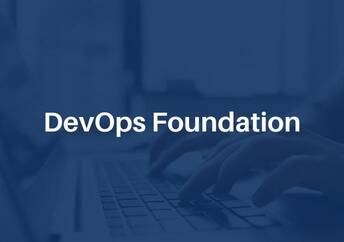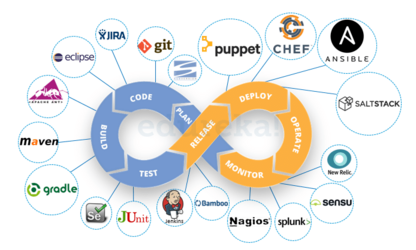How to get DevOps Foundation Certification?

Are you interested in pursuing a career in DevOps? Do you want to enhance your skills and knowledge in this field? If so, getting a DevOps Foundation Certification can be a great way to validate your expertise and open up new opportunities. In this article, we will explore the steps you need to take to obtain the DevOps Foundation Certification and why it is worth pursuing.
What is DevOps Foundation Certification?
DevOps Foundation Certification is an introductory certification offered by the DevOps Institute that validates the basic understanding of core DevOps principles and practices, vocabulary, and culture. It covers all the theoretical concepts and benefits related to DevOps adoption.
The certification is designed for anyone who wants to learn about DevOps, including:
- Software developers
- IT operations professionals
- Business analysts
- Project managers
- Quality assurance engineers
- Anyone interested in learning about DevOps
Why DevOps Certification is important?
The DevOps Foundation Certification is a valuable credential for anyone who wants to learn about DevOps or advance their career in DevOps. It demonstrates that you have a basic understanding of the principles and practices of DevOps, and it can help you to get a job in DevOps or to advance your career in your current role.
Here are some of the benefits of getting the DevOps Foundation Certification:
- Demonstrate your knowledge of DevOps: The certification shows that you have a basic understanding of the principles and practices of DevOps. This can be a valuable asset when you are applying for jobs or seeking promotions.
- Gain access to exclusive resources: The DevOps Institute offers a variety of resources to certified professionals, such as networking opportunities, training courses, and certification discounts.
- Stay up-to-date on the latest trends: The DevOps Institute regularly updates its certification exams to reflect the latest trends in DevOps. This ensures that you are always up-to-date on the latest knowledge and skills.
- Advance your career: The DevOps Foundation Certification is a great way to demonstrate your commitment to DevOps and to advance your career in the field. Many organizations now require their employees to have this certification.
Why should you get DevOps Foundation Certification?
There are many reasons why you should get the DevOps Foundation Certification. Here are a few of the most important ones:
- Demonstrate your knowledge of DevOps: The certification shows that you have a basic understanding of the principles and practices of DevOps. This can be a valuable asset when you are applying for jobs or seeking promotions.
- Gain access to exclusive resources: The DevOps Institute offers a variety of resources to certified professionals, such as networking opportunities, training courses, and certification discounts.
- Stay up-to-date on the latest trends: The DevOps Institute regularly updates its certification exams to reflect the latest trends in DevOps. This ensures that you are always up-to-date on the latest knowledge and skills.
- Advance your career: The DevOps Foundation Certification is a great way to demonstrate your commitment to DevOps and to advance your career in the field. Many organizations now require their employees to have this certification.
- Increase your salary: According to a recent survey, DevOps engineers earn an average salary of $110,000. With a DevOps Foundation Certification, you can expect to earn even more.
- Make a difference in the world: DevOps is a rapidly growing field that is changing the way software is developed and delivered. By getting certified in DevOps, you can help to make a difference in the world by creating better software that is more reliable and secure.
What are the tools need to learn for a strong DevOps Foundation?

These are just a few of the many tools that are essential for a strong DevOps foundation. By learning these tools, you will be well on your way to becoming a DevOps engineer.
In addition to the tools listed above, there are a few other skills that are essential for a strong DevOps foundation. These include:
- Agile development: Agile development is a methodology for software development that emphasizes iterative development and continuous feedback. This is essential for DevOps, as it allows teams to deliver software more quickly and reliably.
- Cloud computing: Cloud computing is the delivery of computing resources, such as servers, storage, and networking, over the internet. This is essential for DevOps, as it allows teams to deploy software to a variety of environments quickly and easily.
- Security: Security is a critical part of DevOps. Teams need to be aware of the security risks involved in deploying software and take steps to mitigate those risks.
How DevOpsSchool is best for DevOps Foundation Certification?
As of my last knowledge update in September 2021, I don’t have specific information about every organization or training provider in the DevOps field, including DevOpsSchool. However, I can offer you some general considerations to help you evaluate whether DevOpsSchool or any other training provider is a good fit for your DevOps Foundation certification journey:
- Reputation and Reviews: Research DevOpsSchool’s reputation within the DevOps community. Look for reviews, testimonials, and feedback from past students. Online platforms like review sites, forums, and social media can provide insights into the quality of their training.
- Course Content: Review the curriculum and course content they offer for the DevOps Foundation certification. Ensure that the topics covered align with the certification exam objectives and provide a comprehensive understanding of DevOps practices and principles.
- Trainers’ Expertise: Investigate the qualifications and experience of the trainers or instructors at DevOpsSchool. Qualified instructors with practical industry experience can enhance your learning experience.
- Learning Formats: Check if DevOpsSchool offers various learning formats, such as in-person classes, online instructor-led training, self-paced courses, or a combination of these. Choose the format that suits your learning style and schedule.
- Practice Materials: Look for the availability of practice exams, quizzes, labs, and hands-on exercises that help you apply what you’ve learned and prepare effectively for the certification exam.